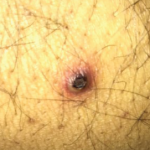Dr. Marietta Iacucci, a gastroenterologist from the University of Calgary, Alberta, Canada, told Reuters Health by email, “Physicians should initially do a full colonoscopy to assess the extent and severity of ulcerative colitis. Once the extent is known, often flexible sigmoidoscopy may be enough to determine response to treatment.”
“In ulcerative colitis patients, a flexible sigmoidoscopy may be sufficient to assess inflammation and response to therapy,” she explained. “This is easier on the patient, as they do not require a full bowel cleansing, and can be done most often without requiring any sedation. It is also a much shorter procedure, perhaps seven minutes at most compared with 30 minutes for a full colonoscopy.”
Dr. Iacucci, who was not involved in the new research, added, “In patients who use topical rectal treatment, the rectum may heal but inflammation may remain further upstream in the colon. In these patients a full colonoscopy may be required to assess inflammation. In patients with left sided ulcerative colitis, the disease may extend in patients further upstream associated with a relapse. These patients may also require a colonoscopy, especially if their symptoms change. In patients with ulcerative colitis and primary sclerosing cholangitis, an inflammation of the bile ducts, the inflammation may be limited to the right colon and these patients may need a full colonoscopy to assess their symptoms. And finally, when a gastroenterologist wants to exclude a colon cancer, a full colonoscopy needs to be done.”
